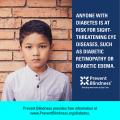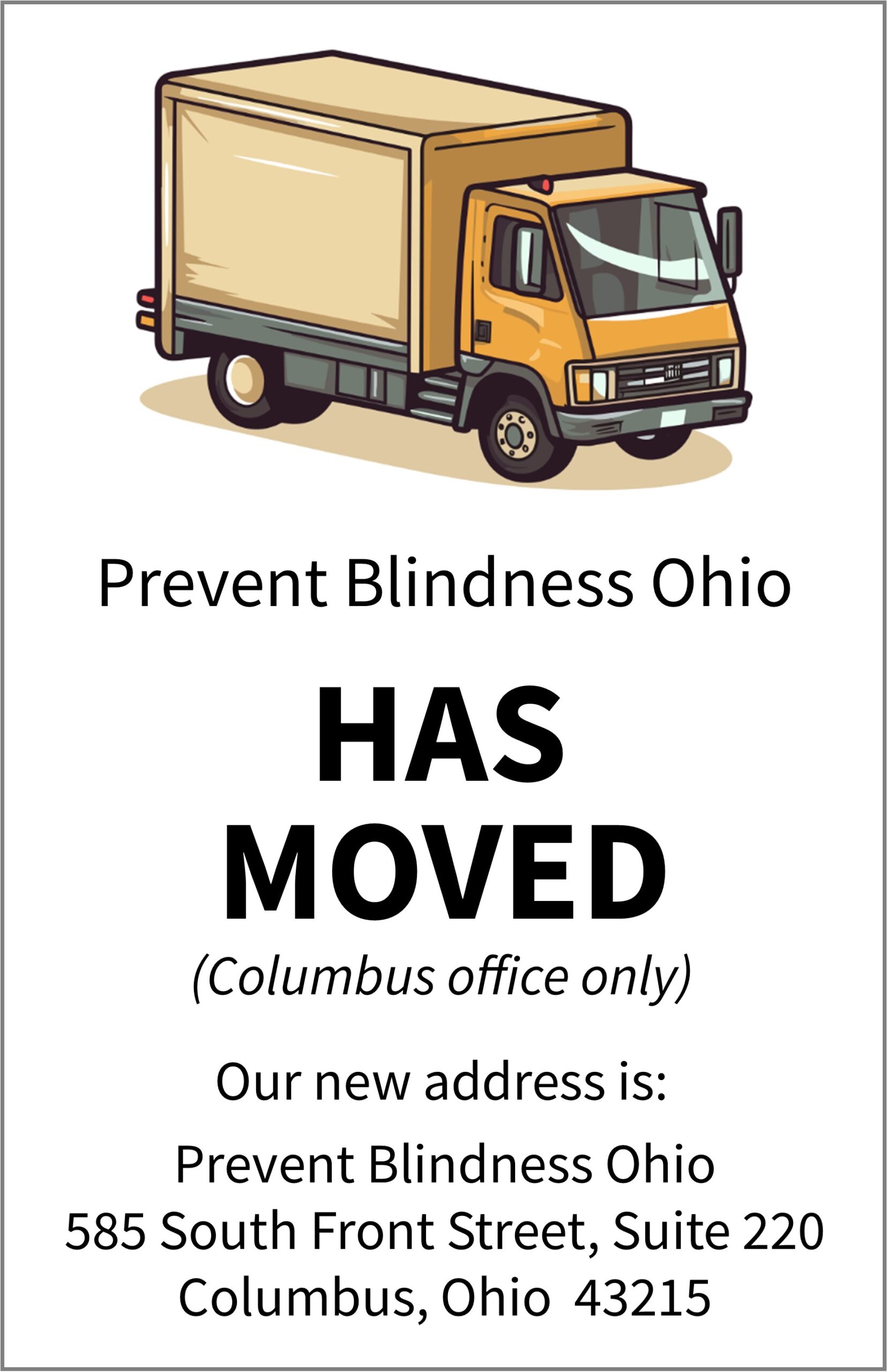Media Contact:
Taylor Elder
Prevent Blindness
Phone: (800) 301-2020 x105
Email: [email protected]
-Prevent Blindness Offers Free Informational Resources as Part of November’s Diabetic Eye Disease Awareness Month-
Columbus, OH (Oct. 30, 2018) – One of the many damaging effects that diabetes can have is on vision. Diabetes is the leading cause of new cases of blindness in adults. The number of individuals affected is alarming. According to the Centers for Disease Control and Prevention (CDC), more than 100 million adults in the United States are now living with diabetes or prediabetes, a condition that if not treated, often leads to type 2 diabetes within five years.
A CDC report also shows that over the past 20 years, from 1994 through 2014, the number of adults diagnosed with diabetes in Ohio has risen from approximately 4.8% to 10.3%. In addition, it is estimated that another 6.1% of Ohio adults have been diagnosed with prediabetes, increasing their risk of progressing to Type 2 diabetes later in life.
November has been declared by Prevent Blindness as Diabetic Eye Disease Awareness Month to educate the public on the effects of diabetes on vision, risk factors and treatment options. A variety of free resources dedicated to the education of diabetic eye disease can be found at preventblindness.org/diabetes.
Diabetes is a chronic condition that occurs when blood sugar levels are constantly high that can cause serious health complications, including heart disease, kidney failure, nerve damage, and blindness. The National Eye Institute states that people with diabetes are 25 times more likely to become blind than those without diabetes. Additionally, African Americans suffer a 40 percent higher frequency of severe visual impairment caused by diabetic retinopathy as compared with Whites, and twice the rate of blindness.
Diabetic eye disease refers to a group of eye problems that people with diabetes may face as a complication of this disease including:
- Diabetic retinopathy – A leading cause of blindness in American adults, it is caused by damage to the small blood vessels of the retina – the seeing layer of the eye.
- Diabetic macular edema (DME) – A complication of diabetes caused by leaking blood vessels, which leads to fluid accumulation in the macula, the center of the retina used for central vision. DME can cause central vision to become blurry.
- Cataract – The clouding of the lens in the eye, which blocks or changes the passage of light into the eye. Cataracts can cause vision to become blurry.
- Glaucoma – Optic nerve damage and possible loss of side vision, usually caused by increase in fluid pressure inside the eye.
“There are 284,631 Ohioans age 40 and older who have diabetic retinopathy, and the number of Ohio seniors affected by aging eye diseases is expected to double over the next 20 years as the Baby Boomer generation ages, ” said Sherry Williams, President & CEO of the Ohio Affiliate of Prevent Blindness. “We encourage everyone to get a dilated eye exam, and those with diabetes to do so annually, so that eye doctors are given a chance to detect, treat and limit the damaging effects to vision.”
For more information on diabetic eye disease or a free listing of organizations that provide financial assistance for vision care, please call Prevent Blindness at 800-301-2020 or visit pbohio.org.
About Prevent Blindness
Founded in 1908, Prevent Blindness is the nation’s leading volunteer eye health and safety organization dedicated to fighting blindness and saving sight. The Ohio Affiliate of Prevent Blindness is Ohio’s leading volunteer nonprofit public health organization dedicated to preventing blindness and preserving sight. We serve all 88 Ohio counties, providing direct services to more than 1,000,000 Ohioans annually and educating millions of consumers about what they can do to protect and preserve their precious gift of sight. For more information or to make a contribution, call 800-301-2020. Or, visit us on the web at www.pbohio.org or facebook.com/pbohio. Or, visit us on the Web at preventblindness.org or facebook.com/preventblindness.




